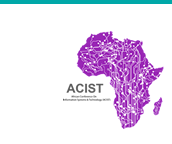Location
Harare, Zimbabwe and Virtual
Start Date
12-9-2024 3:50 PM
End Date
12-9-2024 4:15 PM
Description
This study examines the perceptions of women in ICT regarding the hybrid work model in South Africa's telecommunications sector, a shift accelerated by the COVID-19 pandemic. The research explores both the benefits—such as flexibility, financial savings, and improved work-life balance—and the challenges, including communication difficulties, collaboration issues, and infrastructural problems like power outages. Using a qualitative, interpretive approach, data were gathered through semi-structured interviews with 11 participants from 8 JSE-listed telecom companies. The key finding is that while the hybrid model is generally viewed favourably for supporting career development, the findings underscore the need for well-structured policies to ensure effective and equitable hybrid work environments. The study contributes to theory by introducing the Gendered Digital Competence Framework (GDCF), highlighting the importance of creating supportive workplaces aligned with broader national and global objectives such as the United Nations (UN) Sustainable Developmental Goals (SDG), African Union (AU) Agenda 2063 and the South African National Development Plan (NDP).
The Perceptions of Women in ICT concerning Hybrid Work at Telecommunication Companies in South Africa
Harare, Zimbabwe and Virtual
This study examines the perceptions of women in ICT regarding the hybrid work model in South Africa's telecommunications sector, a shift accelerated by the COVID-19 pandemic. The research explores both the benefits—such as flexibility, financial savings, and improved work-life balance—and the challenges, including communication difficulties, collaboration issues, and infrastructural problems like power outages. Using a qualitative, interpretive approach, data were gathered through semi-structured interviews with 11 participants from 8 JSE-listed telecom companies. The key finding is that while the hybrid model is generally viewed favourably for supporting career development, the findings underscore the need for well-structured policies to ensure effective and equitable hybrid work environments. The study contributes to theory by introducing the Gendered Digital Competence Framework (GDCF), highlighting the importance of creating supportive workplaces aligned with broader national and global objectives such as the United Nations (UN) Sustainable Developmental Goals (SDG), African Union (AU) Agenda 2063 and the South African National Development Plan (NDP).



